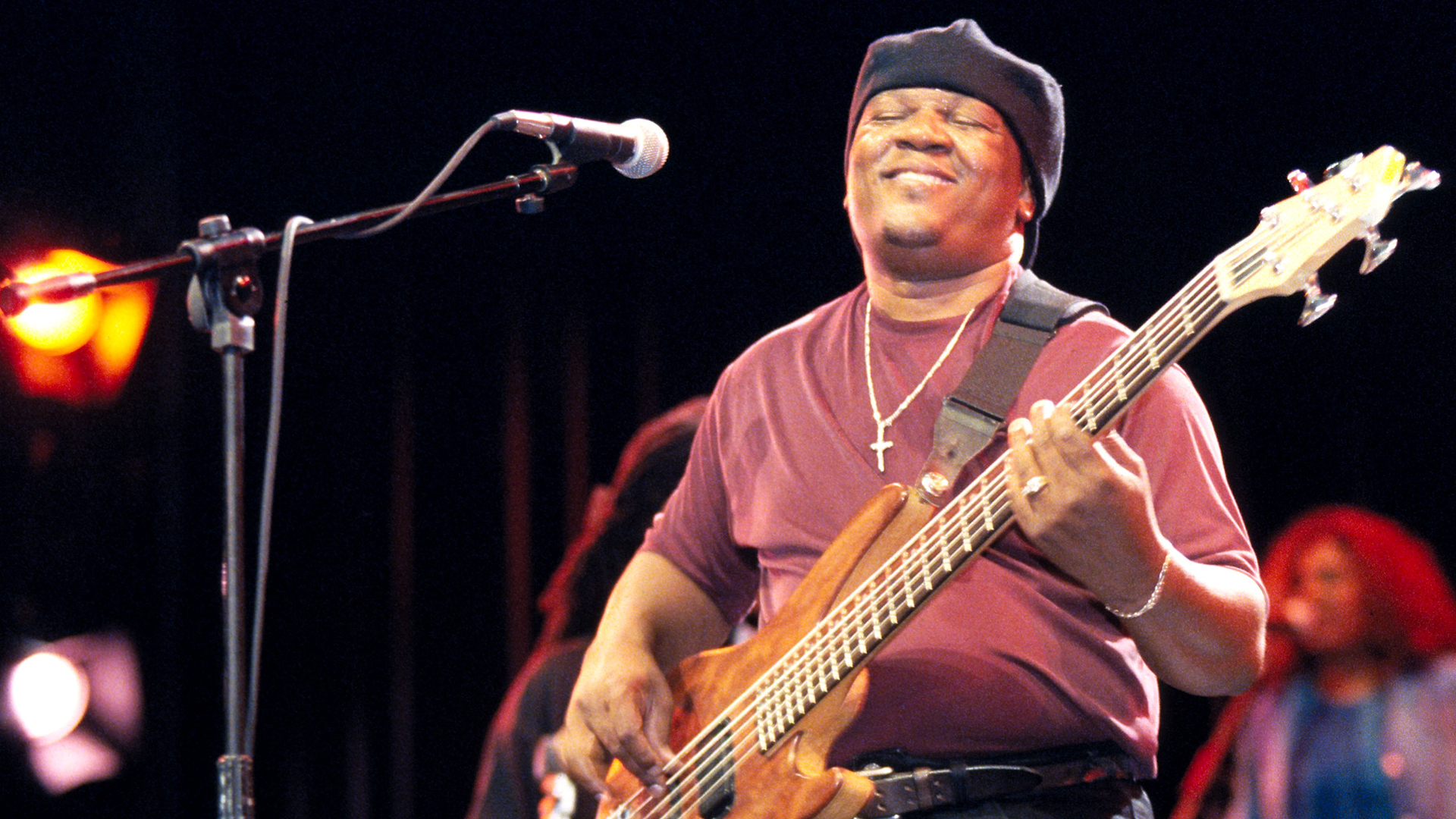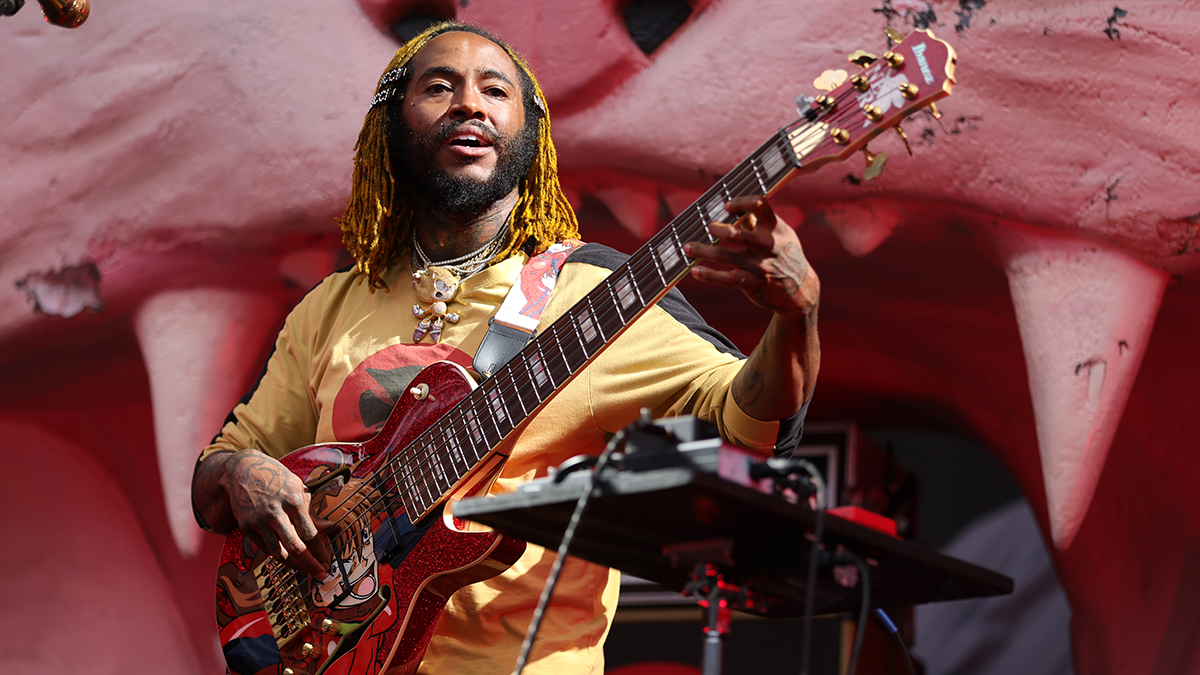“I was forced to play fretless because it was the cheapest bass available”: Paul Simon’s Graceland bassist Bakithi Kumalo defined the 1980s fretless bass sound – but the session pro says he knew nothing about it before making the album
The South African bassist helped create one of the most distinctive tones and techniques of the era, but maintains the decision was a very happy accident

All the latest guitar news, interviews, lessons, reviews, deals and more, direct to your inbox!
You are now subscribed
Your newsletter sign-up was successful
As bassist on Paul Simon’s 1986 smash Graceland, Bakithi Kumalo helped create one of the defining four-string sounds of the decade – and his Washburn fretless bass was key to that smooth, yet colorful and dynamic technique.
Now, in a new interview with Bass Player, Kumalo – who was already one of South Africa’s top session players at the time – recalls the choice of his Washburn and the subsequent development of his distinctive voice on the instrument was actually more of a happy accident than a stroke of genius.
“Man, I had no idea what the hell I was doing,” laughs Kumalo when asked about the initial Graceland sessions.
“I'd just show up and not say much since I couldn't speak English. But Paul was so kind and, through a translator, said, ‘Just relax. I love the way you play,’ and things like that. But the big thing was I was using a fretless Washburn [B-40], which saved my life because it was very different from a regular bass.”
Asked what led him to that choice, Kumalo replies with similar humility: “I was forced to play fretless because it was the cheapest bass available.” However, as the bass icon explains, the decision made sense from a technical point of view, too.
“It was what I could afford, but it wouldn't have worked with traditional music,” says Kumalo.
“If I'd been playing funk, jazz, or things like that, it would have been terrible. But the fretless was perfect for Graceland because it was different, and I could go with interesting tunings and be intuitive. It helped me find a voice and allowed me to follow the accordion player on the record, who was kind of the lead.”
All the latest guitar news, interviews, lessons, reviews, deals and more, direct to your inbox!
Among Kumalo’s most famous contribution with his Washburn was his lively bass work on You Can Call Me Al – a masterclass in sliding notes, muting, rock nods and, of course, that explosive skittering solo run [around 3.45].
“It’s funny because I knew nothing about the fretless bass, so I really had to listen to get that sound,” explains Kumalo.
“The engineer, Roy Halee, recognized what I was doing and helped me get such a beautiful sound... Aside from that, I played a quick solo thing for a few seconds and it was nerve-racking, but the timing was perfect and it came out great. It's not always like that, but it went perfectly that time.”
The timing had to be perfect because, as Bass Player previously reported, Halee later flipped the tape direction and incorporated a reverse-playback for the second half of the final recording. The result, Simon has maintained since, is “physically impossible” to copy.
Keep an eye out for our full forthcoming interview with Kumalo, and check out Bass Player’s full breakdown of Graceland to find out why fretless bass playing would never be the same again...

Matt is Deputy Editor for GuitarWorld.com. Before that he spent 10 years as a freelance music journalist, interviewing artists for the likes of Total Guitar, Guitarist, Guitar World, MusicRadar, NME.com, DJ Mag and Electronic Sound. In 2020, he launched CreativeMoney.co.uk, which aims to share the ideas that make creative lifestyles more sustainable. He plays guitar, but should not be allowed near your delay pedals.
